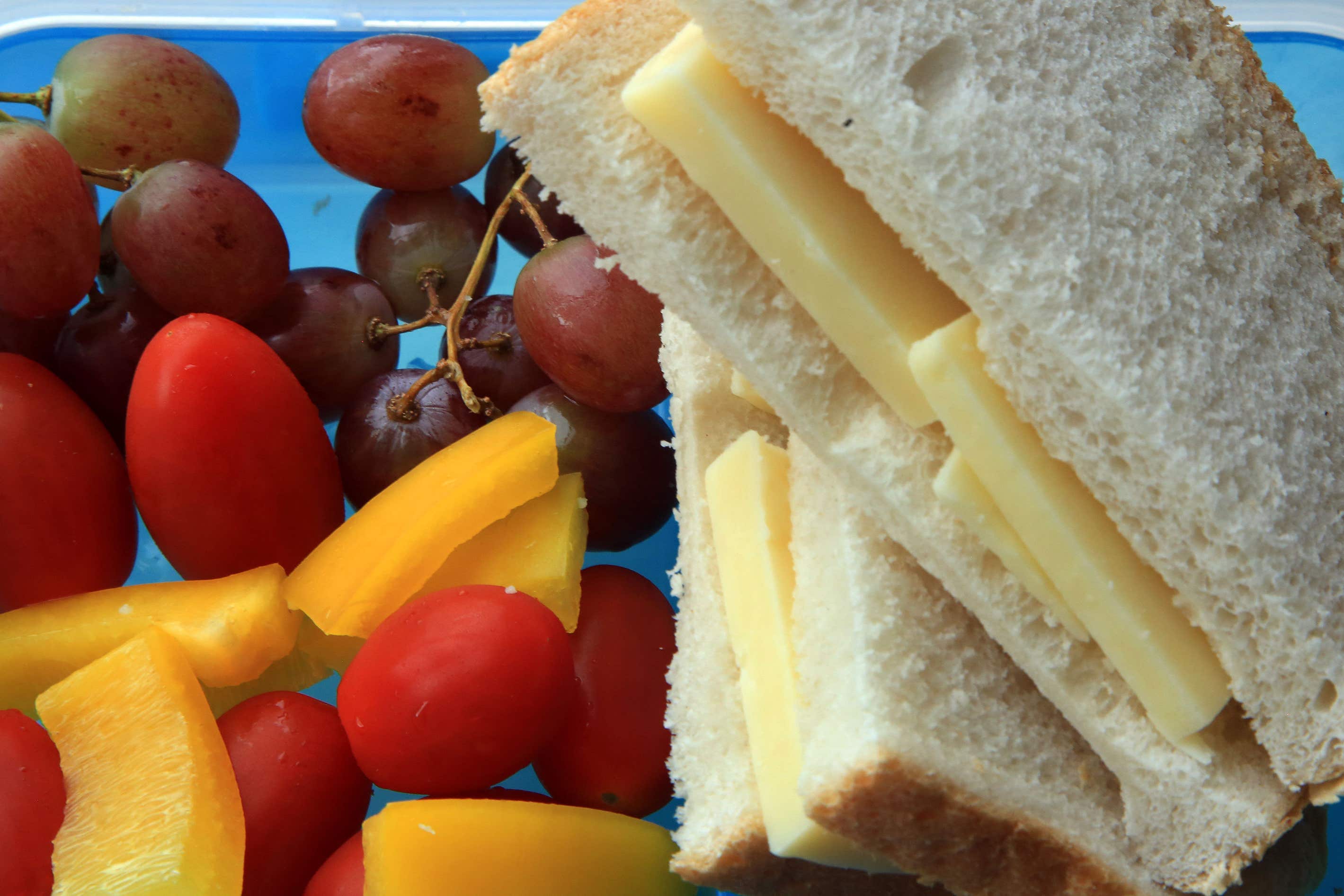Healthy packed lunches 45% more expensive on average, charity research suggests
The Food Foundation looked at food prices across five major supermarkets.

Healthy packed lunches of wholemeal bread and fruit are on average 45% more expensive for parents to put together than less nutritious versions with chocolate spread and crisps, research has suggested.
The Food Foundation charity said items for an unhealthy packed lunch were cheaper overall at five major supermarkets, arguing that this demonstrates the barriers parents face when trying to feed their children a good diet.
Tesco came in as the cheapest place to get food for a healthy packed lunch, the charity said, at a weekly cost of £8.56 as of this month.
Morrisons was the most expensive retailer, with the price of a healthy packed lunch per week coming in at £11.72, although this was down slightly from £11.80 in October.
The equivalent cost at Sainsbury’s was £10.47, Aldi was £10.08 and Asda was £9.18.
The charity said its research showed the largest price rise in recent months was at Sainsbury’s, where it calculated customers would have to spend 9% more than they did at the start of the academic year in September (£9.61) for the same packed lunch.
Unhealthy lunches for the research were made up of white bread with chocolate spread instead of wholemeal with cheese, flavoured yogurt rather than a plain, unsweetened version and snacks such as crisps as opposed to the four portions of fruit and vegetables incorporated into the healthy lunch.
Items for an unhealthy lunch bought from Aldi cost almost half as much as for a healthy one – at £5.68 compared to £10.08, according to the research.
The Food Foundation re-stated a call previously made by campaigners for the Government to extend Free School Meals (FSM) to ensure the most deprived children are “not priced” of a nutritious lunch.
All children at state schools in England are entitled to free school lunches in Reception, Year 1 and Year 2, but other pupils are not entitled to FSM unless their family is in receipt of benefits.
No-one should be priced out of being able to provide healthy food for their children and retailers need to do more to support families to afford the food they need
Currently, families who claim Universal Credit (UC) are only eligible for FSM if their family’s post-tax earnings are less than £7,400 a year.
The charity has also called on retailers to offer a lunchbox meal deal on healthier items – such as breads that are 50:50 wheat, snackable fruit and vegetables, and single portion unsweetened yogurt pots – to allow parents to “easily buy items to make up a week of healthy lunch boxes”.
Shona Goudie, policy and advocacy manager at The Food Foundation, said, “The Government’s stringent eligibility criteria to qualify for Free School Meals is leaving hundreds of thousands of children who are living in poverty but missing out on them at risk of malnutrition.
“Children from families with incomes not low enough to qualify for a Free School Meal and yet unable to afford lunch from the school canteen are left reliant on unhealthy packed lunches.
“No-one should be priced out of being able to provide healthy food for their children and retailers need to do more to support families to afford the food they need.”
A Morrisons spokesperson said they are “committed to working hard to keep prices down and competitive for our customers without any compromise on quality”.
They said they were “disappointed” in-store options such as the supermarket’s Savers bread, humous and Wonky Carrots were not chosen as part of The Food Foundation’s research.
A Sainsbury’s spokesperson said: “We want to make good food affordable for everyone and are committed to offering a wide range of healthy lunchbox options at great value.”
An Aldi spokesperson said: “Aldi has been officially named the UK’s cheapest supermarket for three years running by consumer champion Which? and our promise to our customers is that they will always make significant savings when they shop with us.
“We offer a wide selection of healthy, affordable food including fresh British fruit and vegetables.”
A Department for Education spokesperson said: “We have extended eligibility for free school meals to more groups of children than any other government over the past half a century with the number of children receiving free school meals having more than doubled since 2010.
“There are currently two million pupils claiming a free school meal, 23.8% of all pupils. In total, we spend over £1 billion each year on free meals.”
Bookmark popover
Removed from bookmarks